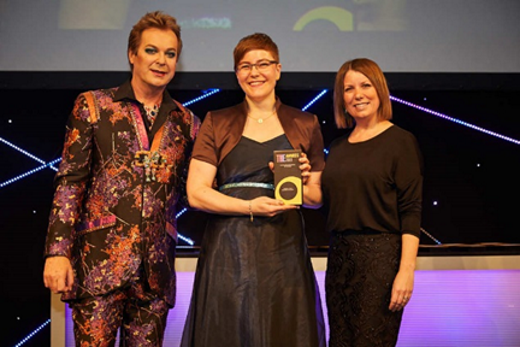What’s happening in the national Technical Community- a look back over 2019
A review of what has been happening in the national technical community during 2019.
2019 has been a busy year for technicians throughout the UK. Here at the University of Leeds we have been engaging with efforts to raise the visibility of technical staff through networking events, the Technician’s Exchange and the launch of our Technician Commitment video. Nationally there have been many similar events and local technician workshops and conferences. This article will look at some of the things that have been going on to support technicians at a national level.
 Nearly 90 universities and research institutes have now signed up to the Technician Commitment. This is really big news and shows how seriously the Higher Education and research sectors are viewing the roles of technical staff. These institutions, including the University of Leeds have pledged to support the four key areas of the technician commitment:
Nearly 90 universities and research institutes have now signed up to the Technician Commitment. This is really big news and shows how seriously the Higher Education and research sectors are viewing the roles of technical staff. These institutions, including the University of Leeds have pledged to support the four key areas of the technician commitment:
Last year there were two key reports issued looking at different aspects of the roles of technical staff:
• In June 2019 the Technician Commitment launched a report on Technicians and Student Mental Health. This revealed how technicians provide unseen “frontline support for student mental health and wellbeing”. There are over 30,000 technicians working in higher education, many of whom are student facing, and with one in four students affected by mental health conditions they are often the first port of call.
• In November 2019 a report – Equality, Diversity and Inclusion (EDI): A Technician Lens – was launched. It identifies key EDI challenges and makes recommendations to institutions to advance equality for everyone working in the sector.
National networking events have also been very important, allowing technicians to share skills and ideas. The biggest was the Higher Education Technicians Summit (HETS) which was held in Birmingham in June. Over 700 technicians from more than 70 institutions attended. The conference is the largest event held specifically for UK and Ireland HE technical staff. HETS also hosts the Papin prizes - a series of awards to publicly recognise technical excellence in academia.
A noticeable difference has also occurred this year with many professional bodies now including categories specific to technical staff in their awards ceremonies. This includes the new award from the Times Higher Education Awards of “Outstanding Technician of the Year”. It is inspirational to read why all those short listed were nominated. There are also more awards, grants and funding available to technical staff, and we aim to share information about any of these that we are aware of and would encourage you all to think about whether you could nominate yourself or a colleague. Some examples of awards that are available to technicians were highlighted in a previous Technically Speaking article.
 THE Outstanding Technician of the Year 2019- Barbara Kunz
THE Outstanding Technician of the Year 2019- Barbara Kunz
Looking forward 2020 should be an exciting year, with more opportunities to learn from each other. For example, the Changemaker Placement Programme has been developed by STEMM-CHANGE. This is an innovative programme to promote diversity in STEMM careers and is searching for technicians from underrepresented and minority groups. There has also been an announcement that in June 2020 there will be a Technician Partnership Conference in Newcastle exploring the theme of how technicians can work together across HEI/ Research Institutes/ Industry.
Often, as technical staff our roles are determined by factors outside our influence, such as fixed term funding, lack of clear career pathways and isolated roles. By sharing our ideas and concerns we may be able to influence this at a national level - the voices of 90 universities and research institutes raising questions together is powerful. We are now better placed to share good practice than we have ever been. If you have any thoughts or ideas, please talk to your local technician champion. The champions need to understand the needs of the wider technical community to be able to represent you all. For those of you approaching the end of your careers please do engage- your wealth of experience may be very helpful to those starting out as technicians. We need input from everyone for this to be beneficial.
By Jennie Hibbard